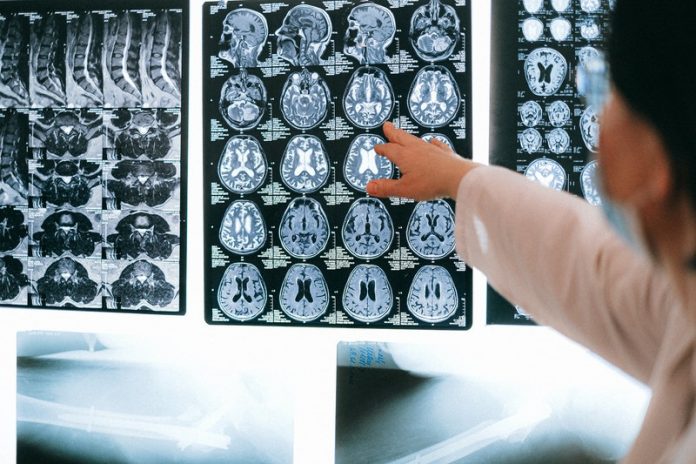
In a new study, researchers found cite decades of published scientific evidence to make a compelling case for COVID-19’s expected long-term effects on the brain and nervous system.
The research was conducted by a team from The University of Texas Health Science Center and elsewhere.
Since the flu pandemic of 1917 and 1918, many of the flu-like diseases have been associated with brain disorders.
Those respiratory viruses included H1N1 and SARS-CoV. The SARS-CoV-2 virus, which causes COVID-19, is also known to impact the brain and nervous system.
The team says it is becoming clear that the damage done by the pandemic will not be limited to acute effects, such as delirium in the hospital, but will have chronic consequences that impact many individuals’ quality of life and independence.
The question is to what degree and under what form. Even mild COVID-19 infections may have negative effects on the brain long term.
The coronavirus is known to enter cells via receptors called ACE2. The highest concentration of ACE2 receptors is in the olfactory bulb, the brain structure involved in the sense of smell.
The basic idea of this study is that some of the respiratory viruses have an affinity for nervous system cells.
Olfactory cells are very susceptible to viral invasion and are particularly targeted by SARS-CoV-2, and that’s why one of the prominent symptoms of COVID-19 is the loss of smell.
The olfactory bulb connects with the hippocampus, a brain structure primarily responsible for short-term memory.
The researchers point out that: intranasal administration of SARS-CoV-2 in mice results in a rapid invasion of the brain.
Headache, hypogeusia (reduced ability to taste) and anosmia (loss of smell) appear to precede the onset of respiratory symptoms in the majority of affected patients.
SARS-CoV-2 can be found in the brain post-mortem.
Abnormal brain imaging that may be characterized by the appearance of lesions in different brain regions—and the appearance of other abnormal brain changes that may influence clinical presentation—has emerged as a major feature of COVID-19 from all parts of the world.
Abnormal imaging was seen in an individual whose only symptom was the loss of smell.
The team will collect information over the next two to three years. Initial results are expected in early 2022 for the first set of evaluations. The study is aided by technical guidance from the World Health Organization.
One author of the study is Gabriel A. de Erausquin, MD, Ph.D., Msc, professor of neurology.
The study is published in Alzheimer’s & Dementia: The Journal of the Alzheimer’s Association.
Copyright © 2021 Knowridge Science Report. All rights reserved.



